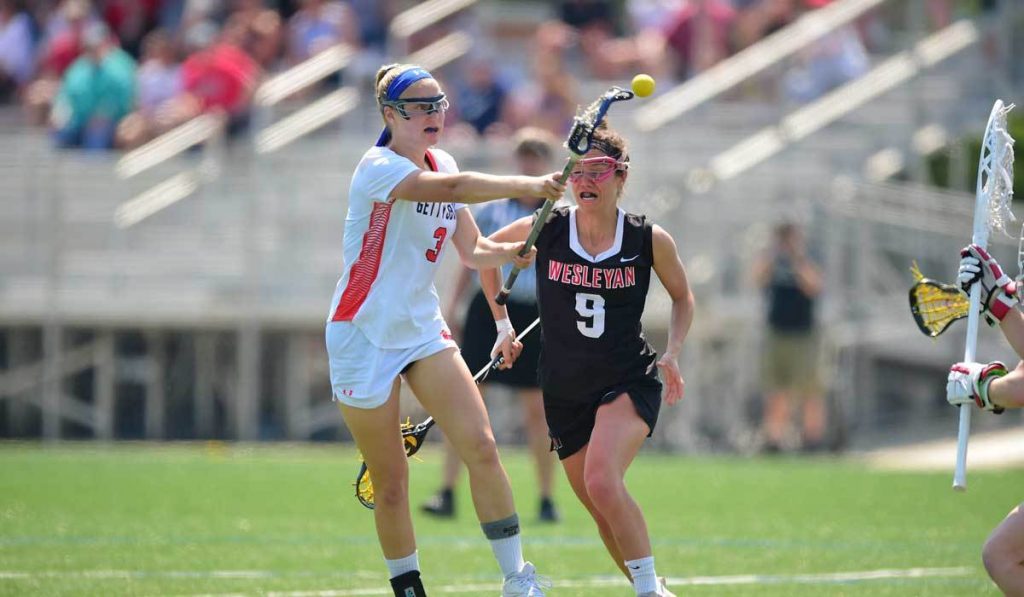

When Gettysburg College extended spring break by a week, it assured students a reevaluation would come as COVID-19 affected the tri-state region.
Then the unthinkable happened.
“After seeing the current environment and what has happened, (the college said) it was best for students and professors that we move to online for the rest of the semester,” Gettysburg senior Liza Barr said. “It came in stages, so I had fought a lot through it and eventually the school ripped the Band-Aid off and said we were online for good.”
The Medford resident admitted the transition to online courses was a bit difficult, given that she was used to in-class participation and learning. Without that close interaction, Barr found it “demotivating” to learn remotely, especially since she can’t have in-person discussions with her peers.
“You don’t get that same sense out of a computer screen,” noted Barr, whose major is business management. “In terms of my friends who are in health, they can’t do their labs, and economics friends don’t have the software on their computers that the school has.
“It’s definitely an adjustment, but at least I know that I am not alone and there are other people in my situation that are going through the same thing.”
Closing the campus also meant no sports, and for Barr, no lacrosse. Division III cancelled its sports seasons shorty after a mandate from the National Collegiate Athletic Association (NCAA) to cease all sports for the health of athletes, spectators and college communities.
The women’s lacrosse team played its last game on March 11 against Salisbury University in Maryland, a day before Gettysburg’s indefinite closure.
“It was very unsettling because as the clock ticked down, I was thinking, ‘Is this it?’ And not knowing the answer to that, because it’s not like it was a playoff game or the national championship where I know it will be my last game,” Barr explained. “It’s a different feeling of uncertainty.”
The women beat Salisbury in overtime (12-11), a win Barr said “felt like a championship” as the players realized it was their final game together. But she is willing to give up more games if it means saving lives.
“This is what has to be done in order for this pandemic to pass and for people to stay healthy,” Barr noted. “It’s a sacrifice I will always be willing to make. It’s also taught me to appreciate the good times and be able to see the good within the bad.”
Most athletes are told by their coaches to play each game as if it were their last and for Barr, who heard that phrase often at both Shawnee High School and Gettysburg, the message is clear.
“I’d rather have 3.75 years and a season cut short [at Gettysburg] than playing a full four years anywhere else,” Barr insisted.
The lacrosse team members, as Barr describes it, are “conjoined at the heads.” So, with every passing week, the women host Zoom video chat sessions with one another. Seniors on the team who played their final game on March 11 have vowed to remain connected.
“It has also been good to have them to lean on because my senior teammates are one of the ones who understand and know what we’re all going through,” Barr said. “We’ve really been relying on each other during this really hard time.”
The team’s coordinated hashtag, #TogetherWeGoFar, recognizes that supporting each other yields favorable results physically, mentally and emotionally.
Female lacrosse players at Gettysburg would not have been able to graduate with the rest of their class since playoff games were scheduled for the same day. A small ceremony was to be held by the team for its graduating seniors.
Now, that too has changed.
“Then graduation at first was cancelled, but there was talk of it being virtual and I was like ‘Oh my god! I can’t catch a break here,’” Barr recalled. “But what was great, Gettysburg gave us a survey to the class on what they want us to do. It’s great that they valued student input for what the next steps should be or what the options were with a virtual ceremony, a ceremony in August, in the fall or in May with the 2021 kids.”
Students voted overwhelmingly for an August or fall graduation.
While her college provided students the opportunity for a postponed, in-person graduation, Barr acknowledged the many seniors across the country whose graduations will now be on a computer screen.
“I’m going to make my moments matter more because we all won’t know what will happen tomorrow, and tomorrow isn’t promised for anyone,” Barr stated. “It’s really living in the now and being where my feet are.
“My coach always said to me to ‘be where your feet are’ and live in the moment.”


